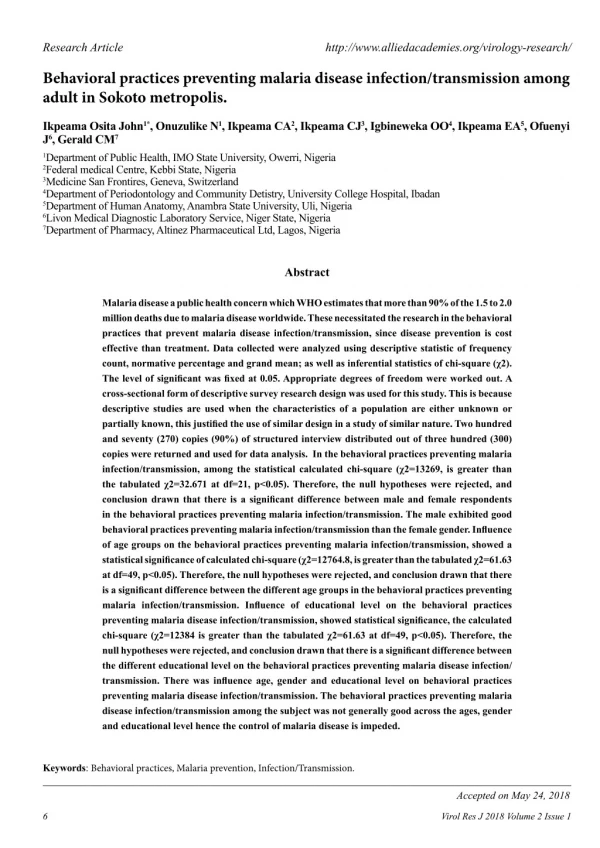Behavioral practices preventing malaria disease infection/transmission among adult in Sokoto metropolis
Malaria disease a public health concern which WHO estimates that more than 90% of the 1.5 to 2.0 million deaths due to malaria disease worldwide. These necessitated the research in the behavioral practices that prevent malaria disease infection/transmission, since disease prevention is cost effective than treatment. Data collected were analyzed using descriptive statistic of frequency count, normative percentage and grand mean; as well as inferential statistics of chi-square (?2). The level of significant was fixed at 0.05. Appropriate degrees of freedom were worked out. A cross-sectional form of descriptive survey research design was used for this study. This is because descriptive studies are used when the characteristics of a population are either unknown or partially known, this justified the use of similar design in a study of similar nature.
★
★
★
★
★
89 views • 7 slides


